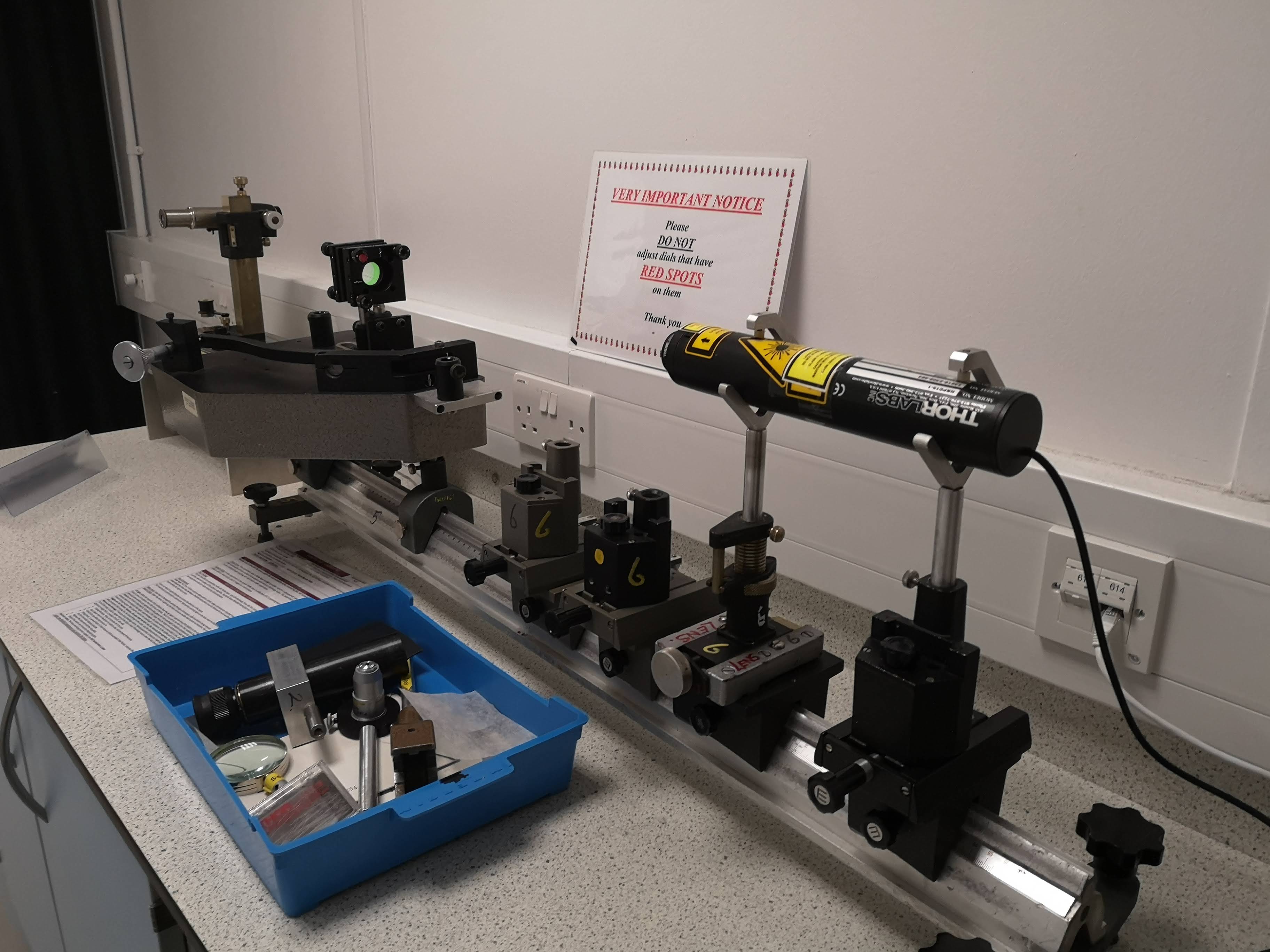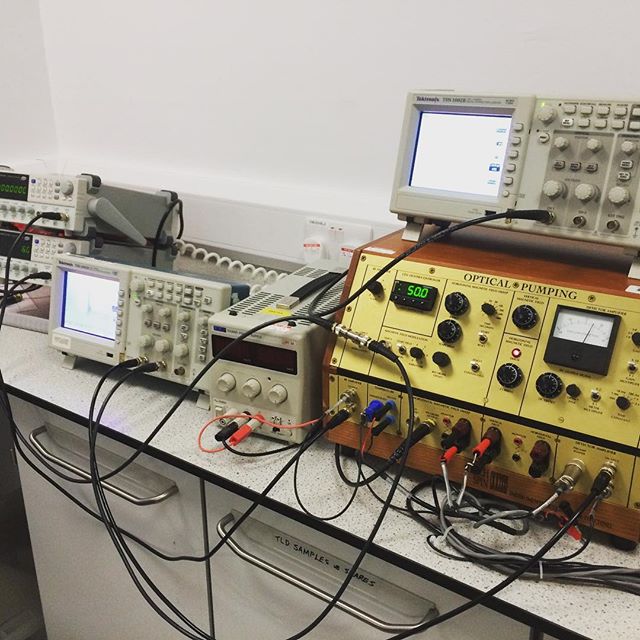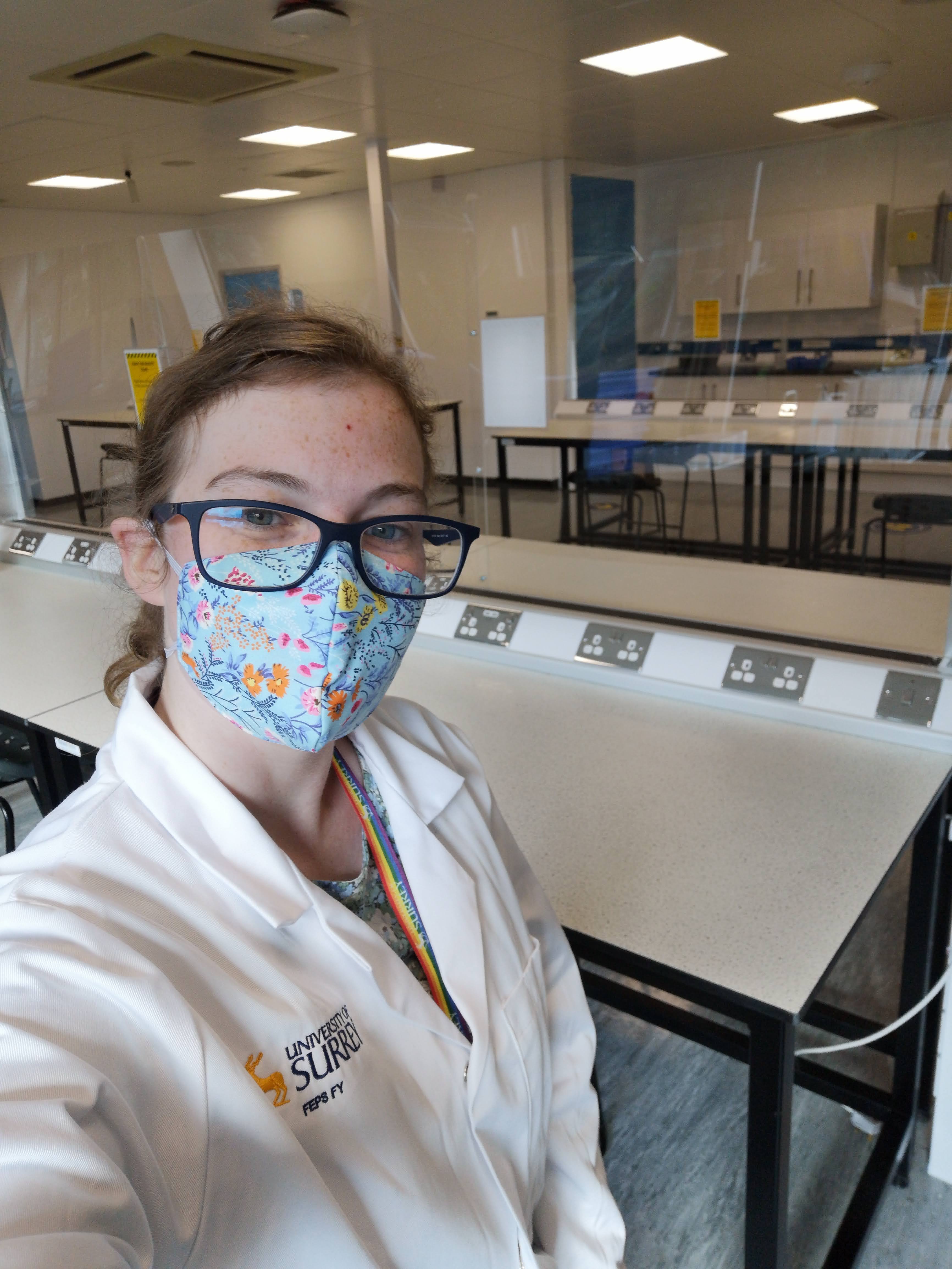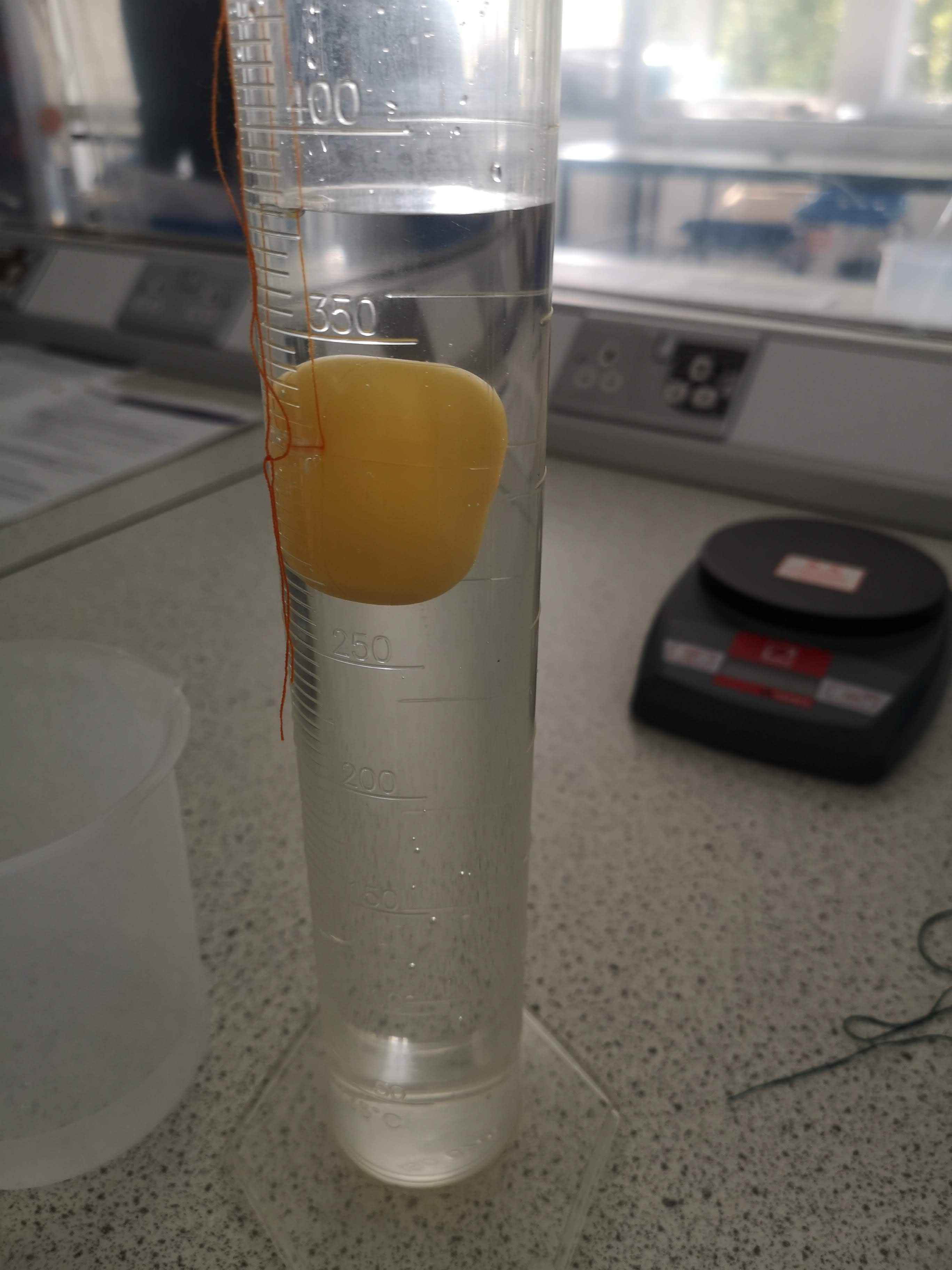One of the most enjoyable things I’ve been able to do during my PhD at Surrey outside of my research is laboratory demonstrating. You can be a demonstrator for tutorial classes, computational or practical laboratories. As an experimentalist, I have always chosen the latter when applying to be a demonstrator. Being a demonstrator is essentially a teaching assistant role where you get to aid students in their learning and support the teaching staff at the university.
Why be a lab demonstrator?
I find that demonstrating in labs is really fulfilling and enables me to build confidence in my teaching in a slightly less structured way than something like giving a lecture. So far during my PhD, I’ve demonstrated in first- and second-year physics labs as well as FEPS foundation year. Every time has been slightly different, but I always learn a lot about the best way to go about supporting students’ learning. It’s especially helpful if you’re planning on staying in academia or teaching in the future, but equally the skills that you develop are useful for any career you might seek beyond your postgraduate studies. There’s also the bonus of a little extra cash to supplement your stipend.

A laser experiment 
The ‘optical pumping’ experiment
Some of the skills that I’ve developed as a demonstrator include communication, teaching, giving constructive feedback, and organisation. I also like reviewing the things I learnt during my undergraduate studies from the teaching side of things. It gives me the opportunity to consolidate my knowledge and develop a variety of ways of explaining concepts to others.
What makes a good lab demonstrator?
The main role of a lab demonstrator is to aid students in their learning. It’s a key element of undergraduate labs—as a demonstrator, you are a key link between students and the teaching staff. I know that I certainly felt more confident approaching the demonstrators as opposed to lecturers during my undergraduate degree.
In my experience, lab sessions are related to the theory classes that students are taking, so it can be a great opportunity to consolidate that knowledge and for them to experience some real-world applications of that theory. Recalling my time as an undergraduate, I try to be the kind of demonstrator that I would want in my labs back then. I always found that the best demonstrators were approachable and knowledgeable, but helped you work through the problem rather than just spoon-feeding you the correct answer. Everyone has a different style of teaching so thinking about what you would want as a student is a good place to start.
For me, this is mostly focused on finding a variety of different ways to explore the experiment. Every student learns differently, so it’s important to acknowledge that what works for one person might not work for another. I always make a few notes on the lab script before the session so that I’m confident with both the practical side of the experiment and exploring the theory behind it.
One under-appreciated trait in a lab demonstrator is being able to say, ‘I’m not sure.’ I think it can be helpful for students to see that we don’t always know the answer immediately. Times when I’m asked a question that I’m unsure about can be a great opportunity to find the other teaching staff in the lab and open up a conversation with them and the student about the question. Sometimes this can turn into a great discussion among a group of students where we all work through the problem together.

Demonstrating in labs during the pandemic was a challenge, but it taught me a lot 
Before term begins, we test out the experiments to ensure that the lab scripts are suitable- here’s a buoyancy experiment
You may also have to do marking as part of your demonstrating. This can be a little intimidating at first, but it’s something I’ve got more confident with over time. One rule of thumb I use is to pick out 2-3 things I thought the student did well and 2-3 things I think they could improve. I then explain my reasoning behind picking out these specific things, often relating it to the marking rubric if I can. Giving specific and actionable feedback is crucial to students’ learning.
The Researcher Development Programme here at Surrey puts on training for lab demonstrating so that you can explore some of these pedagogical ideas alongside other postgraduate students. I’d highly recommend being a demonstrator if it’s something you’re considering.
